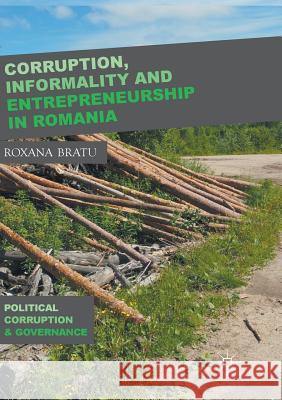Corruption, Informality and Entrepreneurship in Romania » książka
topmenu
Corruption, Informality and Entrepreneurship in Romania
ISBN-13: 9783319882963 / Angielski / Miękka / 2019 / 279 str.
Kategorie BISAC:
Wydawca:
Palgrave MacMillan
Seria wydawnicza:
Język:
Angielski
ISBN-13:
9783319882963
Rok wydania:
2019
Wydanie:
Softcover Repri
Ilość stron:
279
Waga:
0.35 kg
Wymiary:
21.01 x 14.81 x 1.57
Oprawa:
Miękka
Wolumenów:
01
Dodatkowe informacje:
Wydanie ilustrowane











